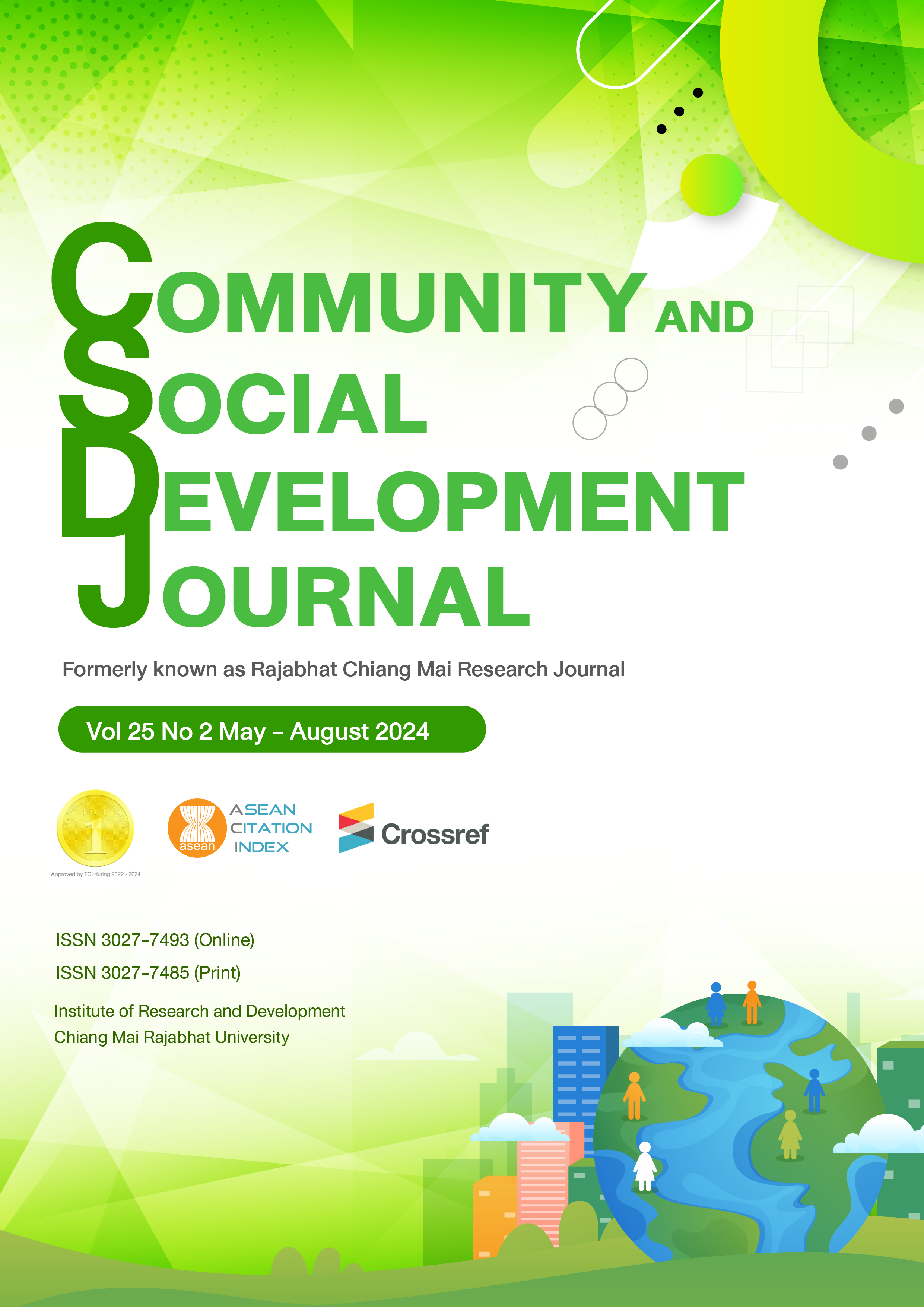The Operation Model Development for Medical Cannabis Using of Public Hospitals in Sukhothai Province, Thailand
DOI:
https://doi.org/10.57260/csdj.2024.268272Keywords:
Medical cannabis extract, Thai traditional medicine, Side effects, ModelAbstract
This research aims to develop operation model for medical cannabis using of public hospitals in Sukhothai Province, Thailand that was divided into 3 phases. Phase 1 was a study of situations and problem finding in the operation of medical marijuana use in Public Hospitals in Sukhothai Province. Phase 2 is the development of a model for operating the medical cannabis use by in-depth interviews with hospital directors and medical marijuana operators. Phase 3 is a follow up on the results of the development of an operating model for medical marijuana use. Data was collected for a period of 6 months. The developing an operating model for the use of medical marijuana are 5 main dimension components, consisting of Policy, Management, Integration, Monitoring and Evaluation, Technology. The results was found that personnel providing services in the medical marijuana clinics include a variety of professions, such as doctors, dentists, pharmacists, Thai Traditional Medicine officers and nurses with the number of personnel attending training to serve more patients who come to receive services in medical marijuana clinics both Western Medicine and Thai Traditional Medicine tend to increase every year. The top 5 diseases include : Insomnia, Cancer, Muscular Tendon diseases, Neuropathic pain, Psoriasis that used in the treatment of Thai Traditional Medicine to treat symptoms and diseases, consisting of Ya Suk Sai yad 500 mg./cap., Ya Tum Lai Pra Sumen 2 g./pack, 5 Hemp oil topical, Ya Kae Lom Kae Sen 500 mg. In addition, Western Medicine is used to treat patients, consisting of THC : CBD/ 1:1, 7% THC. However, patients had side effects, consisting of : dizziness, ALT and AST increase, nausea and vomiting, sleepy, anxious, eGFR decreases, feel dry, heart palpitation. Therefore the development of operations is systematic and efficient. Including patients receiving a combination of Thai Traditional Medicine and Western Medicine that work together as a multidisciplinary team to use cannabis as an alternative treatment for patients. Taking into account efficiency and safety together and continued monitoring of symptoms and side effects in the treatment of patients at the hospital and at the patient’s home.
Downloads
References
Akkasin, S. (2019). Health policies related to medical marijuana use. Journal of The Department of Medical Services, 44(1), 10-12. Retrieved from https://he02.tci-thaijo.org/index.php/JDMS/article/view/246889
Chokevivat, V. (2019). Cannabis: Is It really a magic medicine?. Journal of Thai Traditional and Alternative Medicine, 17(2), 324-340. Retrieved from https://he01.tci-thaijo.org/index.php/JTTAM/article/view/205015
Im-iam, S., Saensanor, S., Sukcharoen, P.,& Sawasdichai, C. (2019). Cannabis. Prapokklao Hosp Clin Med Educat Center, 36(4), 356-362. Retrieved from https://he02.tci-thaijo.org/index.php/ppkjournal/article/view/228729
Nonthasawadri, P. (2020). Drug use, drug abuse and implementation of medical cannabis regulations in Thailand. Public Health Policy and Law Journal, 6(1), 165-179. Retrieved from https://so05.tci-thaijo.org/index.php/journal_law/article/view/232168
Petrakard, P. (2016). Cannabis. Journal of That Traditional & Alternative Medicine, 14(2), 188-189. Retrieved from https://he01.tci-thaijo.org/index.php/JTTAM/article/view/150926
Saijanket, P., Nojan, P., Meekai, N., & Suknarin, R. (2020). Knowledge and attitudes about medical cannabis among people in Phitsanulok Province. Journal of Thai Traditional and Alternative Medicine, 18(3), 595-603. Retrieved from https://he01.tci-thaijo.org/index.php/JTTAM/article/view/238323
Sawatphet, W. (2017). Problems of enforcing drug laws: a case study of irrebuttable presumption in accordance with narcotics. (Thesis of the Master of Laws program, Faculty of Law, Sripatum University).
Sripanidkulchai, B. (2019). Medical use of cannabis. Isan Journal of Pharmaceutical Sciences, 15(4), 1-26. Retrieved from https://he01.tci-thaijo.org/index.php/IJPS/article/view/215744
Srisubat, A., & Thanasittichai, S. (2019). Marijuana and modern medicine. Journal of The Department of Medical Services, 44(6), 5-8. Retrieved from https://he02.tci-thaijo.org/index.php/JDMS/article/view/244745
United Nation. (1979). Single convention on narcotic drugs, 1961. Narcotic Act. Retrieved from https://www.unodc.org/pdf/convention_1961_en.pdf
Downloads
Published
How to Cite
Issue
Section
License
Copyright (c) 2024 Community and Social Development Journal

This work is licensed under a Creative Commons Attribution-NonCommercial-NoDerivatives 4.0 International License.
1. Articles, information, content, images, etc published in the “Community and Social Development Journal” are copyrighted by the Community and Social Development Journal, Chiang Mai Rajabhat University. In order to properly distribute the articles through print and electronic media, the authors still hold the copyright for the published articles under the Creative Commons Attribution (CC BY) license, which allows the re-distribution of the articles in other sources. References must be made to the articles in the journal. The authors are responsible for requesting permission to reproduce copyrighted content from other sources.
2. The content of the articles appearing in the journal is the direct responsibility of the article authors. The editorial board of the journal does not necessarily agree with or share any responsibility.














